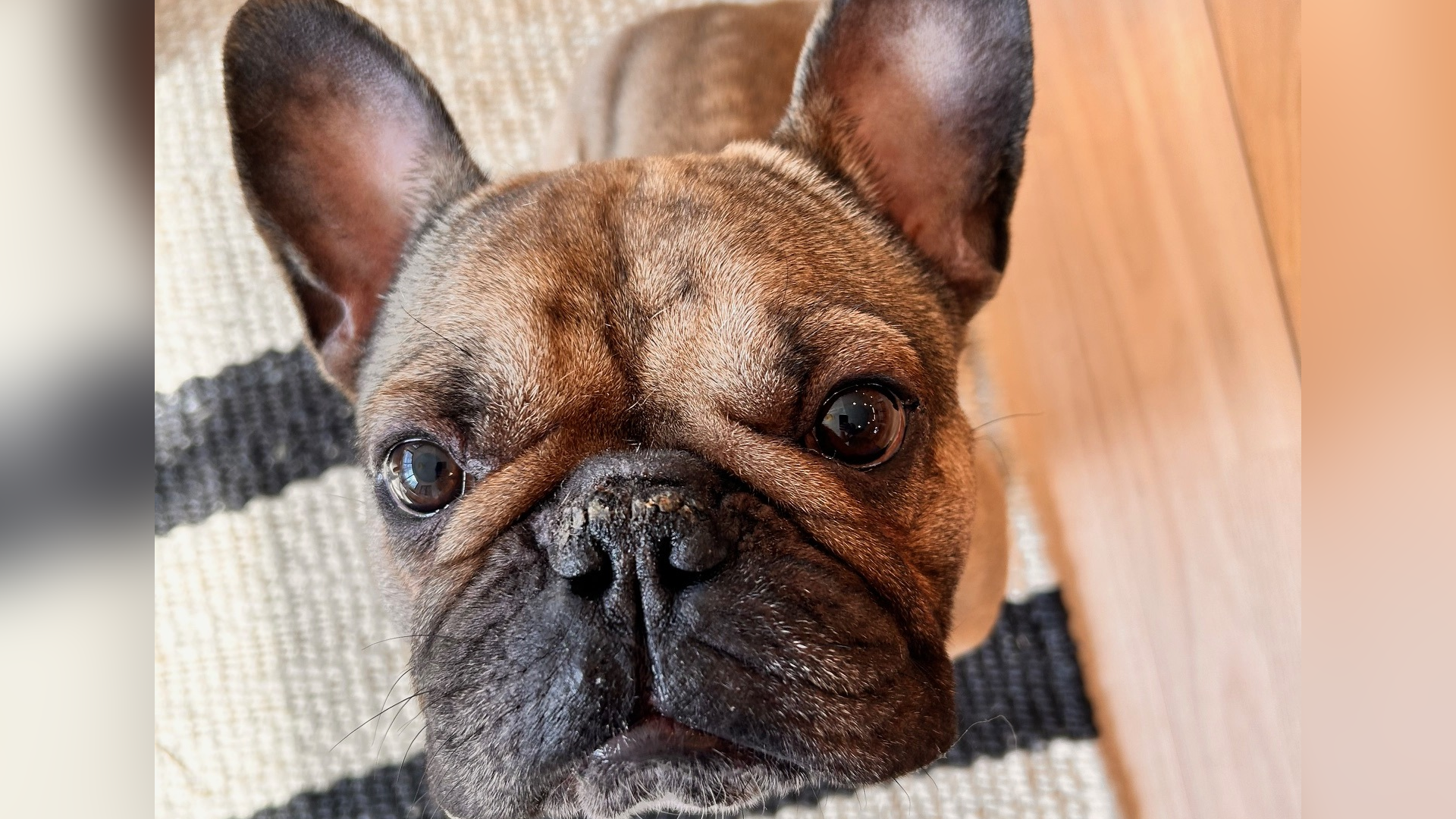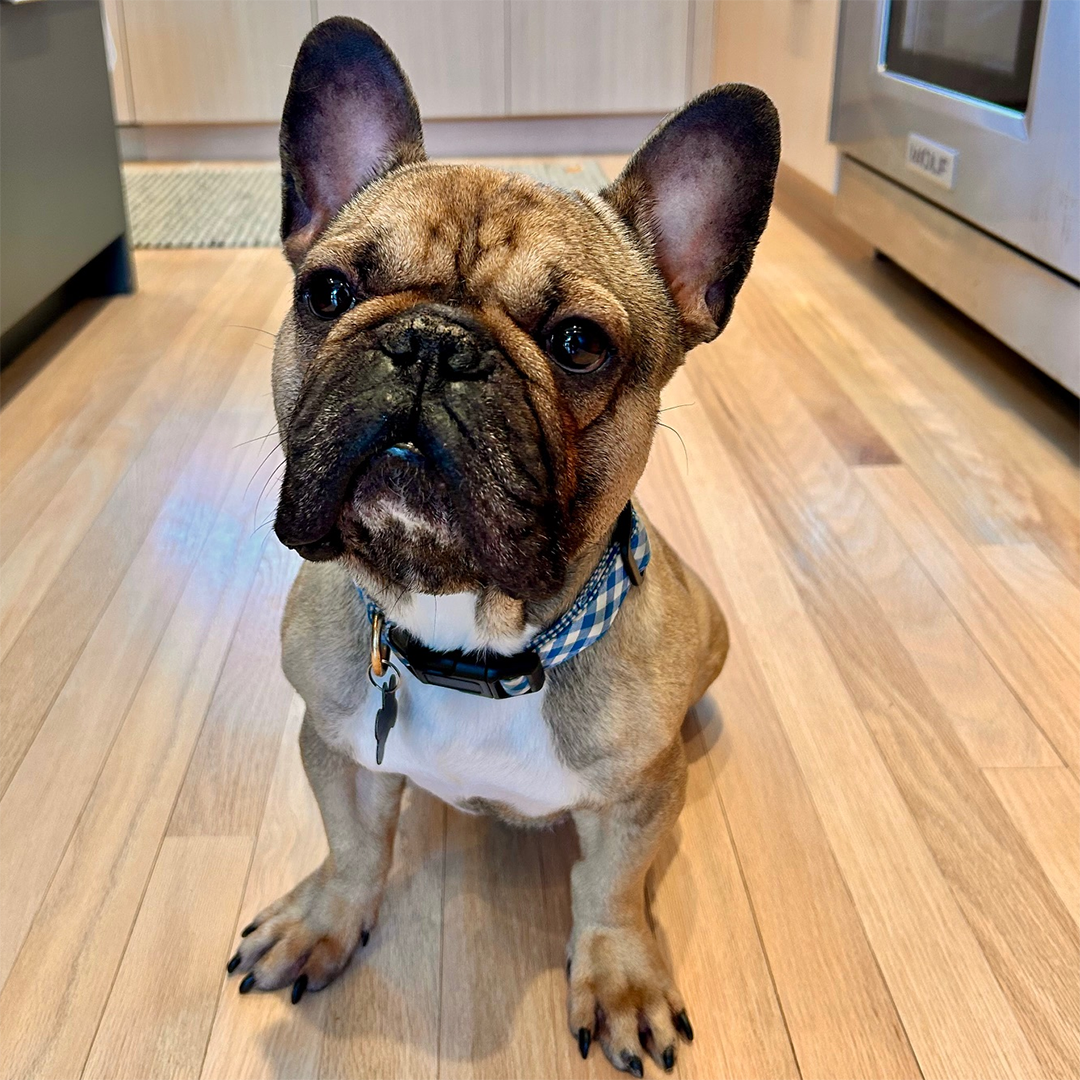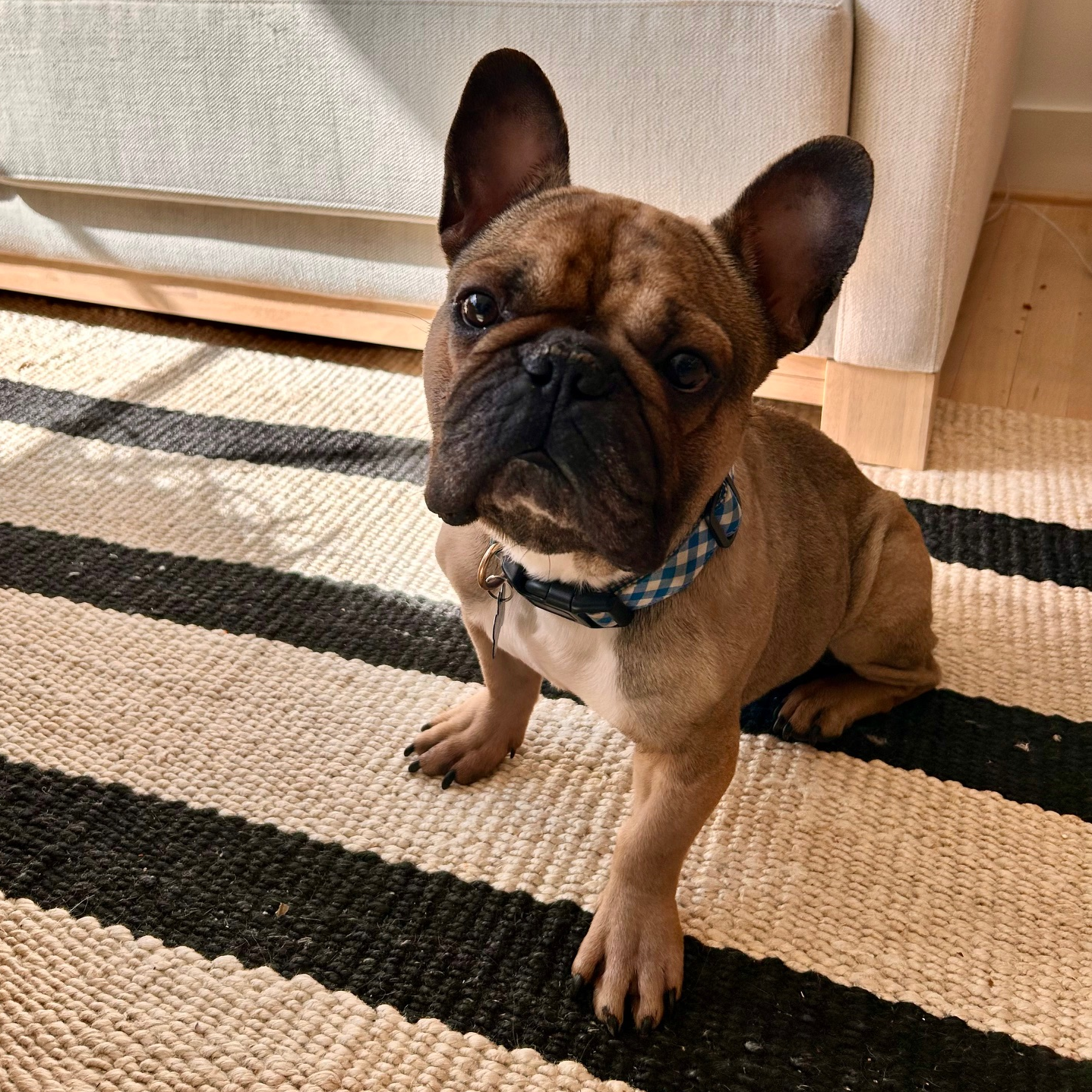
For the love of Dawgs: how a bulldog waddled into his forever home

When Blake Pokress set up his booth at the 2024 American Academy of Physical Medicine and Rehabilitation (AAPM&R) conference, he knew the days would be busy, but he never thought he might be going home with a new best friend.
Blake was at AAPM&R to promote a novel spinal stimulation device from his company. The stimulator helps to restore hand function in people with spinal cord injuries. The device is the result of research conducted by a research team led by Chet Moritz, PhD, a professor of rehabilitation medicine at the University of Washington School of Medicine.
Fortunately, Blake’s booth was in the best spot at the conference expo. Right across from his booth was a puppy park where local San Diego organizations brought dogs to interact with conference goers. The park just happened to be sponsored by the UW Medicine Department of Rehabilitation Medicine. After all, what Husky doesn’t love a puppy park?
“All day long I was looking at dogs,” Blake said with a laugh. “Very tempting.”
Throughout the conference, different groups brought in different dogs. Old dogs, young dogs, small dogs, big dogs. And then, Blake says, “I saw them bring in Louie.” The small, wobbly French bulldog had a short face and a stocky build. He reminded Blake of the two dogs, a boxer and a Boston terrier, that he used to own with his wife.
“He was just cute as could be,” Blake said. “And he had a spinal cord injury as well. He was just learning how to walk again, and he waddled around all over the place.”
“I went up and asked about him,” Blake said. “He came right up to me and put his little face in my hands.”
He snapped a few photos and texted them to his wife: “Hey, you want a dog?”
She didn’t respond right away. She was juggling work and their two young kids. But when she did, Blake got “a hundred text messages” asking about Louie. “She was super excited.”
The next day, a different group of dogs was at the conference, but Blake emailed the group that had brought Louie. When he returned home to Washington, D.C., he found a message from them. The foster mom remembered him from the conference, and the adoption process began.
Blake also learned more about Louie’s history. The San Diego Humane Society had found the pup in rough shape. He was skinny, with ribs showing, and he couldn't use his back legs. A second rescue group took over his care and helped him recover. As he gained some weight and strength, he began to crawl with a slow, distinctive waddle. His rescuers watched him walk and named him the only name that fit: Gator.
But Gator didn’t keep his name for long.
“My wife and I both went to Florida State, and our archrivals are the Florida Gators,” Blake explained. “We were like, that can’t stay. So, he’s Louie now.”
Soon after AAPM&R, Blake was back on a plane to San Diego to bring Louie home.
“He was perfect the whole flight,” he said. “He just hung out right underneath my feet the whole time.”
Since then, Louie’s been thriving. “When we got him, he could walk maybe two blocks. Now he can go double that — probably more if we let him.” Louie even jumps off the couch (against medical advice) and has mastered the gradual stairs at a nearby park.
At home, Louie benefits from his new family’s expertise. “I work in spinal cord injury, and have been working in orthopedics for 20 years,” Blake said. “My wife’s been in nutrition for 20 years. We make his food, and we do red light therapy in the evenings. Between the two of us, we’re like, we got this.”
Blake might have attended Florida State University and Louie might be a French bulldog from San Diego but considering how they met—under the logo of the UW Medicine Department of Rehabilitation Medicine—they get to be honorary Dawgs.

